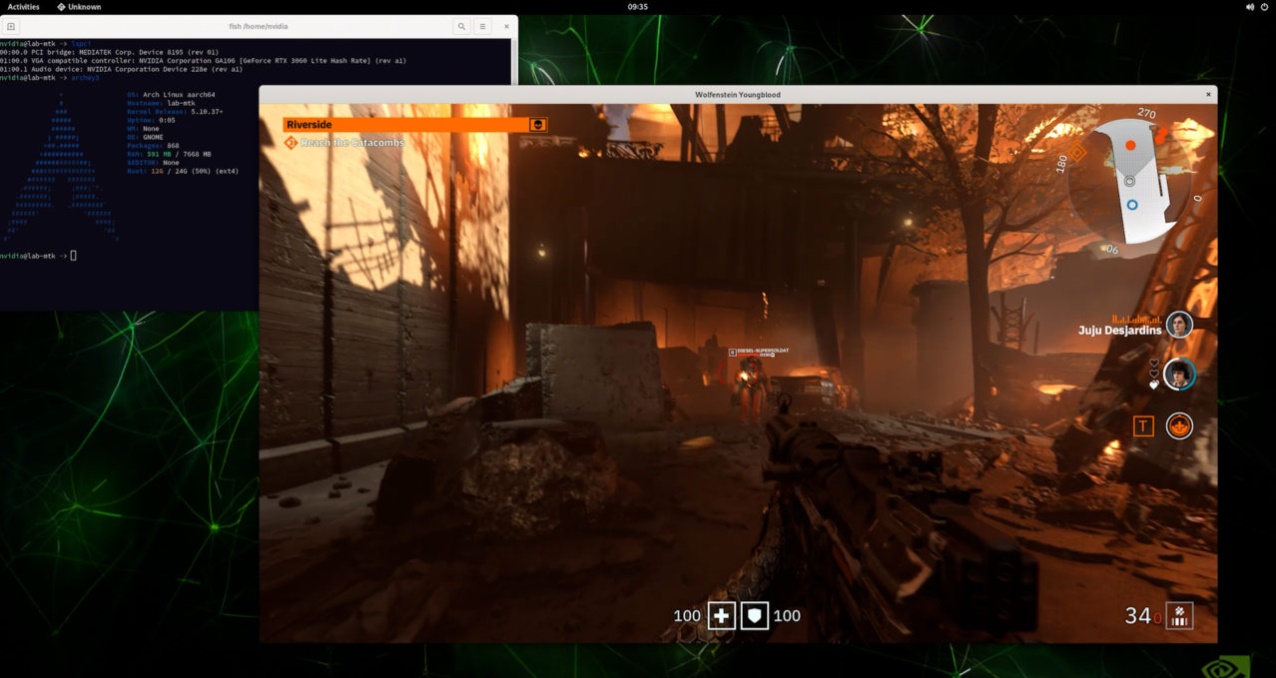Nvidia Enables RTX and DLSS for Arm and Linux
The seeds for the Nvidia-Arm acquisition start to bear fruit.
Nvidia announced a new major update to the capabilities of DLSS and RTX: support for both ARM and Linux. This development was showcased at this week's Games Developer Conference (GDC), where both Wolfenstein: Youngblood and The Bistro's demo from the Open Research Content Archive ran on a system comprised of a Mediatek Kompanio ARM SoC (8 CPU core, 6 nm) paired with an RTX 3060 graphics card. In addition, the showcased system ran both demos with full support for five key RTX technologies: Global Illumination, Direct Illumination, RTX Memory Utility, DLSS and Nvidia's Optix AI-Acceleration Denoiser.
This marks an important move by NVIDIA in expanding system capability for their proprietary RTX and DLSS technologies and represents early work from the company in strengthening its relationship with Arm — even as its acquisition of Arm is still underway and pending further regulatory approval. Nvidia's aspirations for the merger and its results are nothing but lofty. As the company puts it, "The performance and energy efficiency of Arm CPUs with Nvidia technologies can open an entirely new class of PCs." At the same time that Arm continues its assault on the entrenched x86 architecture, Nvidia is looking to carve itself an ecosystem that truly is prepared to confront Intel and AMD on their x86 home turf: gaming.

The demos further illustrate Nvidia's RTX and DLSS compatibility with both Linux and Arm and the strength of the SDK itself, considering how two completely different render engines were used. Of course, this is but one of the steps for the green team's aspirations. Nvidia is looking to eventually sell gaming systems that are Arm and Nvidia-powered, whether via in-SoC GeForce graphics or paired with a discrete graphics card. And in the meantime, the Linux gaming ecosystem just won an important battle for relevance in today's x86-dominated market.
Get Tom's Hardware's best news and in-depth reviews, straight to your inbox.

Francisco Pires is a freelance news writer for Tom's Hardware with a soft side for quantum computing.